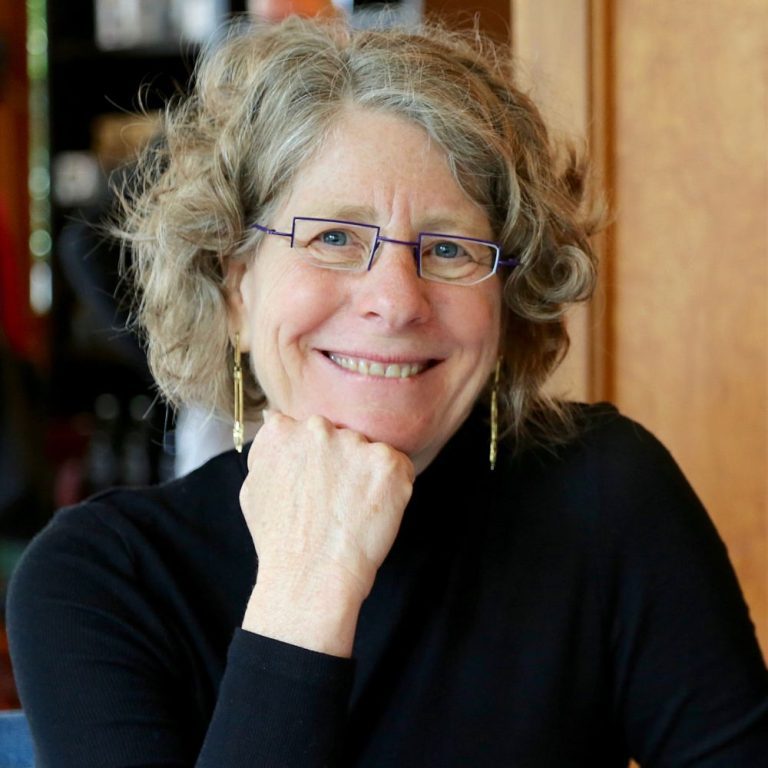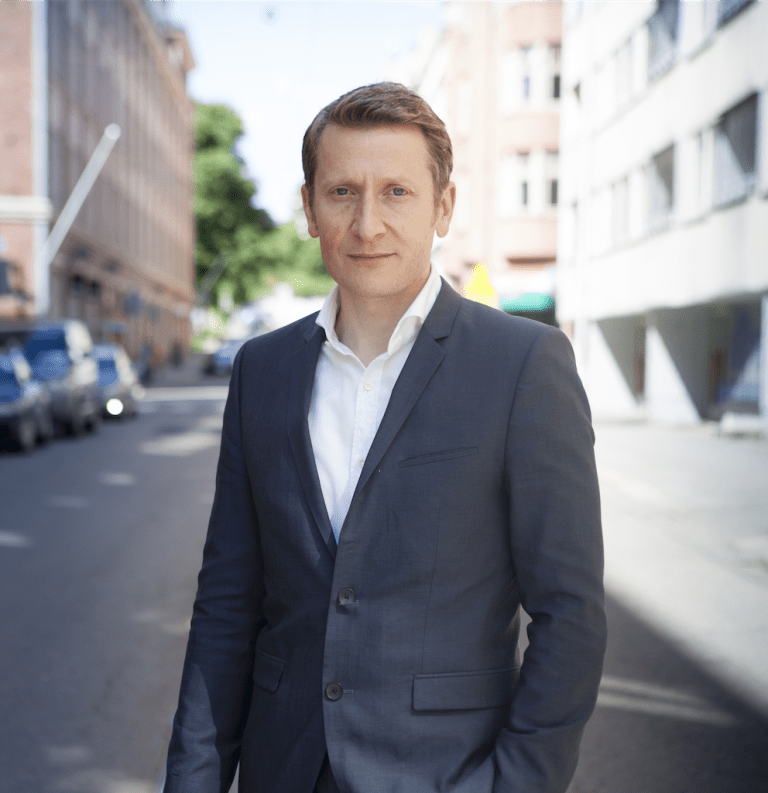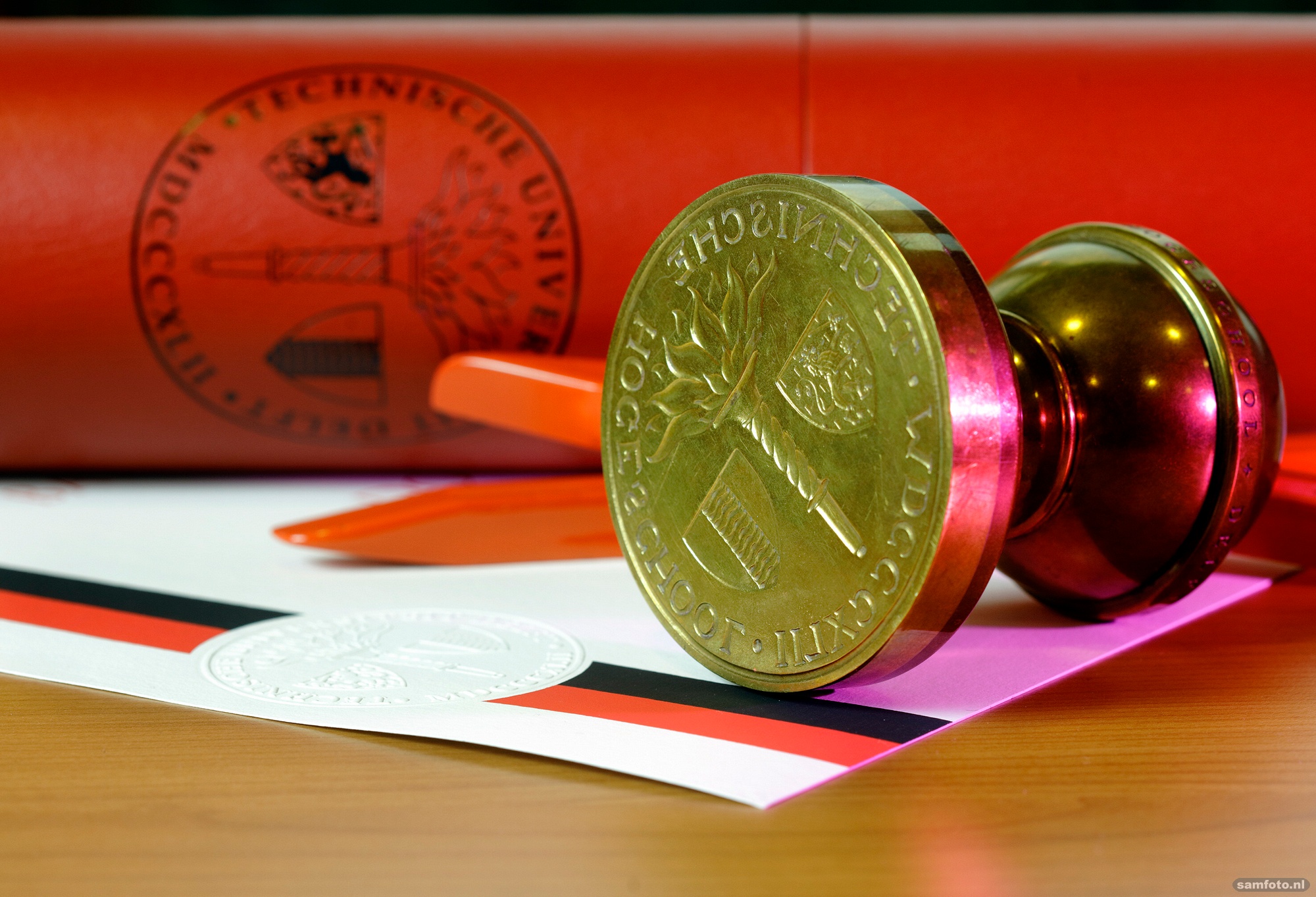TU Delft will confer two honorary doctorates at the Dies Natalis on Batya Friedman (USA) and Marco Steinberg (Finland). They symbolise new perceptions in design.
The seal of the TU Delft. (Photo: Sam Rentmeester)
Engineers are faced with more and more expectations. A fun app, a strong dike or a working enzyme is rarely enough anymore. Solutions need to be CO2 free, socially inclusive and circular, to name just a few criteria. The assignments are also much more complex.
How can engineers come up with solutions for ever more complicated problems while the list of standards only gets longer? Two design pioneers are leading the way and TU Delft has granted them honorary doctorates. They are Professor Batya Friedman and strategic designer Marco Steinberg. The ceremony will be held during TU Delft’s 178th Dies Natalis on Friday 10 January. The theme of the event will be Design for Values.
 Batya Friedman. (Photo: Private collection)
Batya Friedman. (Photo: Private collection)Professor Batya Friedman is the founder of the Value Sensitive Design Lab at the University of Washington in Seattle. Her roots lie in computer sciences and in the early 1990s she studied the interaction between people and computers. This is also where her original awareness of value sensitive design grew, explains TPM Professor Ibo van de Poel. In the meantime, the design method is also being applied to hydraulic engineering, self-driving vehicles and artificial intelligence.
“Designers always have certain values in mind,” smiles Van de Poel. “That is nothing new. But in value sensitive design, these values are made explicit and are treated systematically. “They mostly involve non-functional qualities such as safety, sustainability, privacy and justice. These are separate to whether the design works well or not.”
Non-functional values do not have a direct economic purpose, but they do have an indirect one. Built-in values make technology more acceptable and therefore more successful than non-ethical versions.
If you want to draw attention to value sensitive design, Batya Friedman is the obvious choice, says Van de Poel. She was the first to come up with the term ‘value sensitive design’ and she has always been at the forefront of the movement. Apart from being driven, she is also involved. She keeps in touch with her doctoral candidates and post-docs, and she creates support by involving many people in value sensitive designing.
 Marco Steinberg (Photo: private collection)
Marco Steinberg (Photo: private collection)Marco Steinberg, the other honorary doctor, is also widening the design profession. He is pushing the boundaries of what is considered social and strategic design. In strategic design everything revolves around the question of what an organisation wants to be and stand for and how it wants to get there. “You need to imagine the future, and designers are really good at this,” says IDE Professor of Integrated Design Methodology Dr Peter Lloyd. He wrote the tribute for Steinberg. He was introduced to Steinberg by his colleague Professor Paul Hekkert (IDE).
Lloyd says that “Marco is paving the way for the field of strategic design. He has completely embedded this direction in his work despite having had quite a traditional training at the Rhode Island School of Design. After his course he realised that there were issues in society, health care and the environment that nobody was addressing because they were too big or too complicated. He did not let that put him off and he widened his view, taking the perspective of the problem to work towards a vision of how things should be. This is the red thread in his work. He’s a trailblazer.”
Steinberg made his name as the director of the Finnish innovation platform Sitra and as a founder of the Helsinki Design Lab. He started working in his own consultancy bureau, Snowcone & Haystack, in 2013 and shares his office with Finland’s former prime minister, Esko Aho.
“These experiences have made him stronger,” says Lloyd. “He understands how an approach in design can bring solutions to problems. What are those problems, what do they say about an organisation? What are the underlying values? Marco is a powerful catalyst in dealing with these kinds of questions.”
Engineer and society
The Executive Board has named Friedman and Steinberg Doctor Honoris Causa and in doing so has put Design for Values on the map. Design is largely how engineers find solutions to numerous issues. They do not do this in isolation. More and more, society is looking over their shoulders and we have to get used to it.
“Engineers are more frequently being asked about societal and ethical issues,” notes Van de Poel. “Before we used to tell engineers how relevant we were as ethicists in technology. Now they themselves are coming to us with queries.”
- The Design for Values symposium will be held before the academic ceremony on Friday. The event will look at how values change over time (value dynamics) and how to deal with opposing values in a design process (value conflicts). Apart from Friedman and Steinberg, the two honorary doctors, various TU Delft researchers will speak, giving examples from their own design practice.
- View the event on Collegerama
Do you have a question or comment about this article?
j.w.wassink@tudelft.nl


Comments are closed.